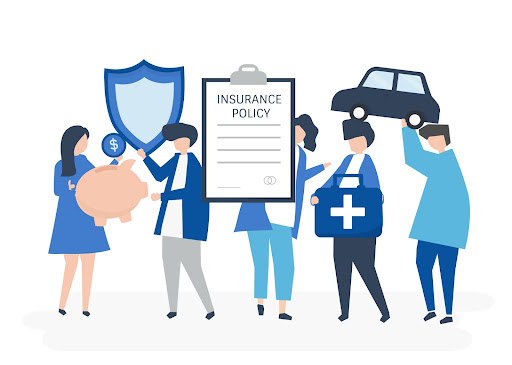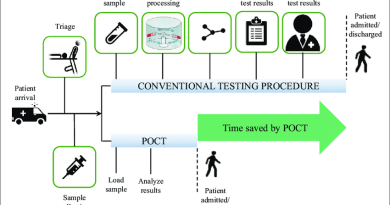Things You Should Know About Group Insurance
In today’s globalised world, employees must be well-protected in personal and group accidents or events. This is where group insurance comes in – a system that helps a group of employees cover the costs of injuries or losses they suffer due to an accident or event. In this blog, we will discuss the key pros and cons of group insurance schemes for employees and provide a comprehensive guide on what you need to know about group insurance before making a decision.
Group Insurance Scheme for Employees
Group insurance schemes offer several benefits to employees, including a discount on premiums and comprehensive coverage. They can also access unique benefits, like life insurance, in case of death or disability. It’s essential to make sure the scheme is right for your business before signing up. If you have any questions about group insurance, don’t hesitate to speak to a specialist.
Features of Group Health Insurance
Group health insurance is an excellent benefit for employees as it provides financial security in the event of an illness or injury. Furthermore, group health insurance can help to prevent employees from overspending on personal healthcare plans. On the downside, group health insurance schemes can be expensive for small businesses – costing several thousand dollars per employee annually. This makes them impractical for companies with a low number of staff members. Employees are generally automatically enrolled in group health insurance once hired by the company – making it easy and hassle-free to take advantage of this valuable plan.
Free Coverage
Being an employee in a company with group insurance coverage is generally a great thing. Not only are employees automatically covered by the scheme, but the premiums are also relatively low. The primary cons of this type of insurance usually relate to the fact that it is often little or no choice when picking an insurer. Employers should ensure their employees know all these pros and cons so they can decide if group insurance coverage is right for them.
No Waiting Period
This means that if you or a family member suffers an accident while on the job, you can get help immediately. It is also essential to note your policy number in an emergency.
If something happens and you need to have the policy number handy, it might be easier to resolve the matter without involving your employer. Make sure your group insurance information reaches your employer as well – this will allow them to contribute towards premiums and other benefits related to group insurance schemes, such as health coverage for members’ spouses/de facto partners and children up to 18 years old. You may also enjoy discounts on premiums if you belong to a union or association!
Cover for Family Members
One of the most significant benefits of group insurance is that it covers family members in the event of an accident or illness. This makes it a valuable addition to your health insurance policy and can help to provide peace of mind during difficult times. Group insurance schemes also offer various employee protections, such as maternity leave, redundancy pay, etcetera. However, some limitations are associated with this type of coverage – like higher premiums and less scope for specific conditions or illnesses. It’s essential to speak to your HR team about group insurance policies so that they can make suggestions based on your business needs and requirements.
Maternity and Newborn Baby Coverage
Maternity and newborn baby coverage can be a great addition to your insurance policy. Group insurance plans offer several benefits that are hard to find in the private market, including discounts on maternity clothes and other health-related items. Do keep in mind before enrolling yourself or an employee in group insurance:
1. You must ensure that the plan covers everyone who works for your business.
2. Activation of the policy requires employees’ consent.
3. Policies can only cover certain aspects of maternity care (for example, hospital expenses).
Cashless Hospitals
Cashless hospitals are a great idea as they make life easier for patients and healthcare professionals.
1. Patients no longer have to worry about carrying cash/money around or trying to arrange loans in case of unexpected hospitalisation.
2. This system also eliminates health insurance exclusions, which can be frustrating for employees suffering from certain conditions like asthma or high blood pressure.
3. Additionally, group health insurance schemes usually have lower premiums than personal health policies, making them an excellent financial option for companies with a large workforce.
4. However, there are downsides associated with cashless hospitals, too – such as security issues and data privacy concerns, among others.
OPD Coverage
Employee benefits insurance is a vital part of any business and should be well-planned. With so many variants available, deciding which type of insurance is right for your organisation can take time and effort. Here are some tips on choosing the best employee benefits insurance:
– First, research what types of coverage your business needs – this will help you narrow the list of suitable group health schemes.
– Second, determine who will be responsible for signing up employees – ideally, this should either be the HR department or an insurance representative with experience in employer policies.
– Thirdly, ensure employees are aware of their rights and understand how group health schemes work – they should also know about their benefit entitlements under each scheme.
Finally, contact an OPD specialist with any questions or concerns about coverage or application procedures.
Preventive Healthcare and Extra Benefits
Preventive healthcare is a great way to keep your employees safe and healthy. With group insurance schemes, you can have comprehensive health coverage for all your staff – no matter who they are or where they work. This ensures that not one employee falls through the cracks while seeking medical assistance in case of an accident or illness. In addition, group insurance schemes offer various other benefits such as maternity leave, disability coverage, life insurance, etcetera. You must be registered with the plan to avail of these benefits – so you must note if you want assurance about getting the best possible deal for yourself and your team members.
Conclusion
Group insurance schemes are an excellent way for employees to get affordable health insurance coverage. However, before signing up for a group insurance scheme, it is essential to understand the pros and cons of the scheme. Additionally, it is vital to know group insurance basics, such as coverage types and available benefits. Remember to read our blog post to learn more about group insurance and decide if it’s the proper coverage.




